
Dr. Thomas Burns gets up close and personal with the sea's deadliest predator in his spare time.

Dr. Thomas Burns gets up close and personal with the sea's deadliest predator in his spare time.

Drive here, go there, do this, finish that-you're really busy today! And every day, for that matter. Try these tips to smooth the kinks from your schedule and bring sanity back to your day-without hurting the bottom line.

Men: Don't marry a woman with a career because you'll run a higher risk of having marital problems (read: divorce).

Show respect for your clients, your profession, your family, and yourself over the holidays-leave work at work.

Achieving life balance isn't easy. Changing your approach requires trust and commitment.

Dancing keeps this veterinarian on her toes.

Just think of me as a big, black spider, plotting and planning ways to get you to my sticky Web site. In this scenario, you're the juicy fly, I'm afraid. But when you get to vetecon.com I hope you'll be happy as a clam. (This is where my metaphor falls apart, in case you didn't notice.)

Four years ago, my business partner Dr. Ed Farnham and I purchased the Hexagon House, a bed and breakfast in Pentwater, Mich., off Lake Michigan.
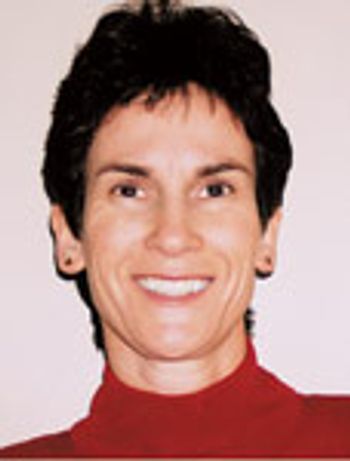
Juggling a career and kids may seem impossible. But with a little thought and planning, you can bring a baby onboard-and still keep your head above water.

Once I discovered mountain climbing was something I could do, I wanted to push myself," says Dr. Michael Andrews. "When I was 20, I never thought I'd be doing something like this."
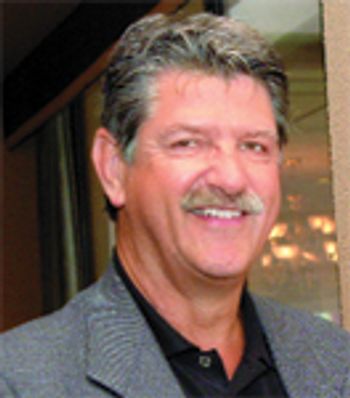
You cover a lot of ground everyday, leaping personal and professional hurdles. Balance and practice will help you tread diverse terrain and become more than a well-rounded doctor-you'll be a well-rounded person.

Owners and associates, you can see eye to eye. Just get the monkeys off your back.

Want to love your job 10 years from now? A little time away could make the critical difference.

Try these strategies to beat back burnout and stay jazzed about your work.

Veterinary Economics Editorial Advisory Board member Dr. Marty Becker and other authors of "Chicken Soup for the Pet Lover's Soul" and "Chicken Soup for the Cat and Dog Lover's Soul" will release two new books on Oct. 11: "Chicken Soup for the Dog Lover's Soul" and "Chicken Soup for the Cat Lover's Soul.".
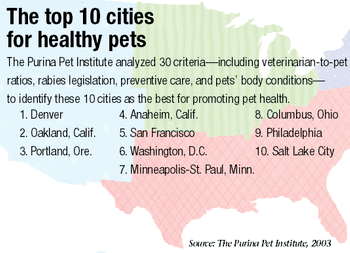
Where you choose to live affects your career opportunities, your personal happiness, and even the health of the patients you see. Does your city rank among the best?
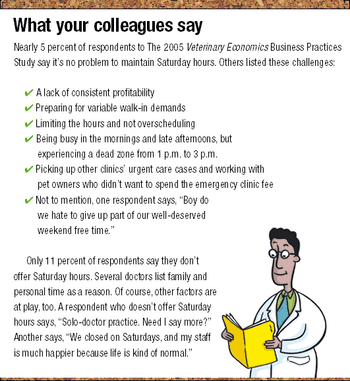
Almost 90 percent of you are are at work. Maybe it's time to buck the trend.
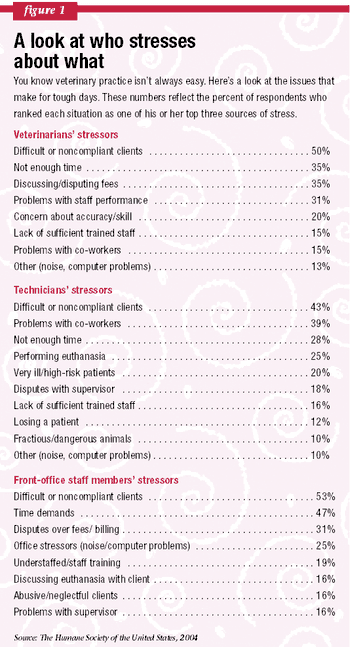
Nearly 30 percent of practitioners are at risk for compassion fatigue. Would you recognize the symptoms and know what to do?
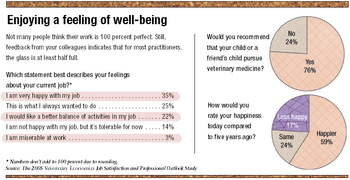
Despite occasional grumbles about life balance, the latest Veterinary Economics survey shows that 88 percent of practitioners find their normal level of stress manageable—and they're enjoying their work.

Enjoy a happy veterinary career by leaving your angst at the door.
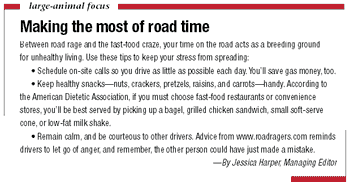
I'd wanted to be a veterinarian since I was 7 years old, but after 12 years in practice, I didn't know if I could stand another day. I was frustrated, tired, and worn out by the constant stresses of practice, including staffing headaches, client turnover, and financial strains. And those stresses were having a profoundly negative influence on my personal life, too.

Different people find different situations stressful, but some stressors transcend personal differences and affect a majority. Many such key job stresses are associated with these six categories:
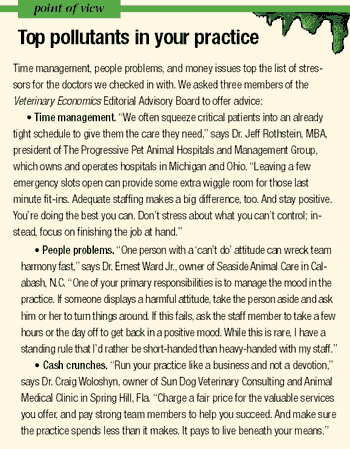
Use these strategies to make sure tension never becomes toxic for you or your team.

It's 7 a.m. on a Tuesday morning, and our house is in its usual state of controlled chaos. Breakfast bowls are clinking, backpacks are zipping, and comments are flying around the kitchen faster than a budgie on a beak-trim breakaway. Unfortunately, every sentence seems to start with my name.

The toughest professional decisions are made with compromise for practice owner Dr. Abby Snyder. She generally reduces the pile of medical charts on her desk by half before going home to her husband and daughter.

On average, veterinarians say they would prefer to devote more time to personal activities than work.

You're a dedicated doctor. You spent eight years preparing for and enduring veterinary medical school. For the past six years as an associate, you've lived your dream.

DVM Newsmagazine